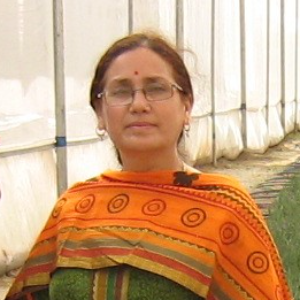Title : Hot water and plant extract application in eradicating seed borne and field infection of Septoria leaf spot (Septoria lycopersici Speg ) infecting tomato and improving seed
Abstract:
Septoria leaf spot of tomato (Septoria lycopersici Speg.) is a most devastating foliar pathogen infecting tomatoes world over. The disease produces symptoms with onset of monsoon in Himachal Pradesh, India as small, water soaked, circular to angular spots, with dark brown margins, spots bearing black pin head sized pycnidia in the greyish centre at the time of maturity. On advancement, spots get coalesced, symptoms slowly developed from lower to upper leaves giving blighted appearance. Morphological studies of the test pathogen revealed suppressive and somewhat fluffy type of colony with dull white to grey colour, undulated margin colony in the pure culture whereas pathogen produced ostiolated and globose pycnidia with an average size of 84mm, conidiophores of 4-12x2-4mm with an average size of 8x3mm in which conidia were hyaline, filiform, multi-septate with the size of 13.7x2.5mm. On the basis of morphological characters, the associated pathogen was identified as Septoria lycopersici Speg. Under pathogenicity test, to prove the Koch’s postulates on cv. “Solan Lalima”, the symptoms of the disease appeared on leaves after 14 days of pathogen inoculation suggesting incubation period of 336 hours best for occurrence. For disease management, physical and non chemical viz., different hot water treatments, six botanicals/bioformulation were applied to the seeds and in field. HWT at 48°C for 30 min. showed the maximum germination percentage (87.54%) value of seed growth parameters and recorded minimum disease severity and disease incidence of 47.01% and 33.26% ,both as seed treatment and under field conditions. However, in case of botanicals/bioformulations, garlic extract (Allium sativa L.) as seed treatment gave maximum germination percentage (87.69%) and other seed growth parameters with minimum seed infection (4.63%) while under in vitro garlic was most effective and significantly superior to all other treatments with 80.69 per cent inhibition in mycelial growth and also reduced the disease severity and incidence (36.78% and 42.09%) in field followed by beejamrit.


